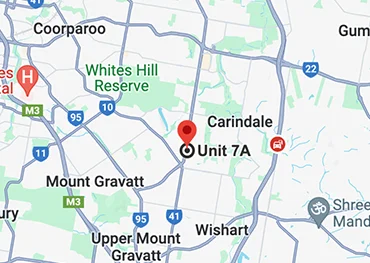
Do you feel tired all the time? Worn out? Struggling to bounce back from injuries or workouts that used to be easy? Like no matter what you do, you’re never fully recharged?
If that sounds like you, then let me tell you something real: you’ve got a problem. But it’s not just about feeling exhausted—it’s about how you’re recovering. Or more likely, not recovering.
As someone who’s been in the health & fitness game almost three decades, I’ve seen it all. And now in my late 40’s, I know firsthand that recovery doesn’t happen like it did in my 20’s or 30’s. That bounce-back time we once had? It slows down and if you don’t adjust, if you don’t take your recovery seriously, everything else suffers—your training, your energy, your mood, even your immune system. Recovery becomes the single biggest factor that determines whether you can keep pushing forward or whether your body holds you back.
Here’s what most people get wrong: they think recovery means doing nothing. Lying on the couch. Skipping a training session. Sleeping in a little longer. But that’s not recovery—that’s just being passive. Real recovery is active. It’s intentional. It doesn’t happen by accident. You have to build it into your day, the same way you build in training or work or meals. You don’t wait for your body to recover. You make it recover.
It starts with three key pillars—nutrition, sleep, and recovery aids like sauna, red light therapy, cold exposure, and massage. These aren’t luxuries. These are your edge. Your tools. Your weapons.
Let’s break this down.
Training wears you down. That’s what it’s supposed to do. It creates stress on the body to stimulate growth, increase cardio and enhance your conditioning. But the real progress happens during recovery. Without proper recovery, you’re just tearing yourself apart without rebuilding. You won’t grow. You won’t get stronger. You body simply won’t move forward and progress.
And if you’re in your 30s, 40s, or beyond? You need to stop acting like recovery is optional. It’s non-negotiable. If you want to train with the same intensity, duration, or frequency you did years ago, then you better be recovering smarter than ever before.
Athletes get this. They don’t just train hard. They recover even harder. Ice baths. Stretching routines. Smart fueling. Deep, consistent sleep. They don’t leave recovery up to chance—because they know it’s where the wins are built.
And it’s not just for elite athletes anymore. Recovery has become crucial for everyone—the weekend warriors, the busy parents, the career-driven professionals, the fitness beginners, and especially anyone over 35. Life throws everything at us—stress, work, kids, fatigue, injury. The only way to stay in the game is to recover harder than life hits you.
So how do you actually recover like a champion?
Start with your routine. Make it daily. Not “when you have time”—every day.
Dial in your nutrition. Eat to fuel, not just to fill. Get rid of those foods that leave you sluggish and inflamed. Hydrate—your body can’t recover if you’re constantly dehydrated. Stretch. It may sound basic, but the benefits on your muscles and nervous system are massive.
Then, treat sleep like it’s sacred. Not just any sleep—quality sleep. Deep, restful, uninterrupted sleep. And yes, there are tools to help with that. At Zua Health, we’ve spent years testing and using recovery tools that work. I personally swear by regular sauna sessions—at least four times per week. Red light therapy? It’s an absolute game changer. Use it five to seven days a week, and you’ll start to notice shifts in energy, mood, and pain reduction. Add cold therapy and massage to the mix, and you’ve built yourself a recovery protocol fit for a high performer.
These aren’t gimmicks. They’re science-backed, athlete-approved, and life-changing. And they’re all available at Zua Health, because we don’t believe in hype—we believe in results.
This isn’t about being soft. It’s about being smart. Champions aren’t just built in the gym—they’re built during recovery. The decisions you make behind the scenes determine how strong you’ll be when it’s time to perform. Every poor meal, every compromised sleep, every missed recovery session—it either pushes you forward or pulls you back.
So now that you know, what are you going to do? Keep grinding yourself into the ground until you break? Or are you going to recover like a professional and come back stronger, sharper, and more unstoppable than ever?
The truth is, if you want to break through plateaus, if you want to feel younger, move better, and keep training hard well into your 40s, 50s, and beyond—you need to treat recovery like your life depends on it.
Forget waiting to feel ready. Start now. Prioritize recovery. Build it into your life. Commit to it. And watch what happens.
Because once you lock in recovery, you unlock performance on a level you didn’t even know existed.
Contact us now for more information about our products or to book an appointment with a consultant, either by phone or in person.

15 Gateway Dr
Biggera Waters QLD 4216
Monday – Friday: 9:00am – 5:00pm
Saturday: 9:00am – 4:00pm
Sunday: 9:00am – 2:00pm

7/429 Creek Rd
Mt Gravatt QLD 4122
Monday – Friday: 9:00am – 5:00pm
Saturday: 9:00am – 4:00pm
Sunday: 9:00am – 2:00pm

2/306 Gympie Rd
Strathpine QLD 4500
Monday – Friday: 9:00am – 5:00pm
Saturday: 9:00am – 4:00pm
Sunday: 9:00am – 2:00pm

657 Ruthven St
Toowoomba QLD 4350
Monday – Friday: 9:00am – 5:00pm
Saturday: 9:00am – 4:00pm
Sunday: 9:00am – 2:00pm

SHOP 7 13-15 Glasson Dr
Bethania QLD 4205
Monday – Friday: 9:00am – 5:00pm
Saturday: 9:00am – 4:00pm
Sunday: 9:00am – 2:00pm